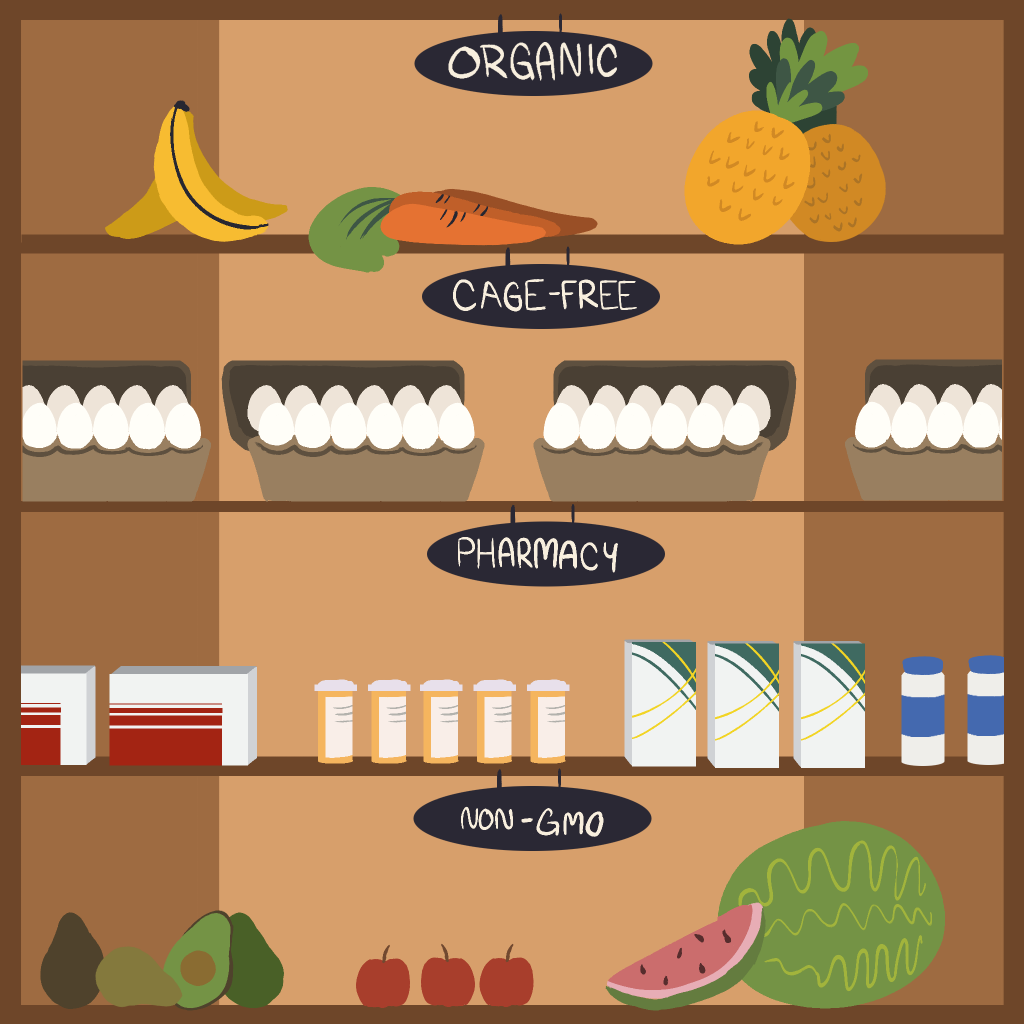A philosophy professor examined ethical consumerism and its impacts in her new book, “Global Health Impact: Extending Access to Essential Medicines.”
Nicole Hassoun, co-director of the Institute for Justice and Well-Being and a professor of philosophy, is studying ethical consumerism and its impacts on global health. “Ethical consumerism” is a type of political activism based on the belief that when customers buy a product, they also buy into the system that produces it, according to Development Education, an online resource focused on modern inequities. By mass-purchasing a certain product over another, customers can promote or stand against certain labor or environmental practices. As a result, companies are altering their products to fit the ideals of consumers — an example of this is certain products now being labeled as non-GMO or sweat-shop free.
Hassoun said that much of the responsibility falls on the consumer when trying to decide which products to buy.
“If we lack institutions that are going to help us solve these problems — because obviously they haven’t all been solved and our governments are often failing to address them — then maybe we leave the situation with the consumers,” Hassoun said. “There is a burden on us to try to advance positive change.”
Ethical consumerism has a long history, according to Development Education. In the late 1700s, many people began petitioning the U.K. government for better working conditions in factories. In 1802, the Factory and Health and Morals Act was passed. It was arguably the first significant social justice movement of modern times. In its modern day form, however, ethical consumption began to take place in the 1950s and 1960s, with fair trade initiatives and the hippie movement. People began to become more aware of the widespread impacts of their purchases.
Tzvi Salzberg, a senior majoring in philosophy, spoke about his views on the benefits of ethical consumerism.
“I think that it has an important role to play in shaping behavior you’d like to see, but on the whole I think there needs to be some more structural or regulatory changes together with a sort of individual ethical consumerism,” Salzberg said.
In her book, Hassoun discusses her belief that there should be a global public health label that pharmaceutical companies can stick on their over-the-counter products, highlighting their commitment to expanding access to life-saving medications throughout developing countries. Hassoun believes these widespread labels will provide billions of dollars in incentives for companies to improve access to essential medicines. In this system, consumers are able to consider which companies are saving lives with their drugs.
Jessica O’Keefe, a senior double-majoring in English and philosophy, politics and law, said she felt such a global initiative could be effective.
“Hopefully with long-term encouragement of this label and other kinds of labels like that we can gradually start to support the products and corporations that align with our values and that are trying to create a better future for everyone,” O’Keefe said. “We can then weed out the more malicious business practices or capitalist techniques.”
Charles Goodman, director of the philosophy, politics and law program, commented on Hassoun’s work, stating that raising awareness on unethical consumption can promote active change in consumers.
“When the ethical consumers of today realize that simply by choosing certain consumer products, they can help provide access to needed medicines for the world’s poor, at least some of them are likely to change what they buy, so that companies will have a reason to improve their policies,” Goodman wrote in an email. “As a result, more kids will get to grow up healthy, and more adults will be able to work and develop their own solutions to the problems they and their societies face.”
Ethics tend to have many gray areas, according to Development Education. Certain practices tend to be universally considered unethical. However, some practices are not as universally seen as ethical or unethical, such as biking to school rather than driving. Therefore, Hassoun explained that ethical consumption is an imperfect system.
In light of some of its flaws, Hassoun still believes that ethical consumption can be a major tool that can be used to promote change.
“Ultimately, we need to make decisions that will make things better,” Hassoun said. “And it may be ironic that the best way of helping people get bargaining power is to exercise our own purchasing power.”



